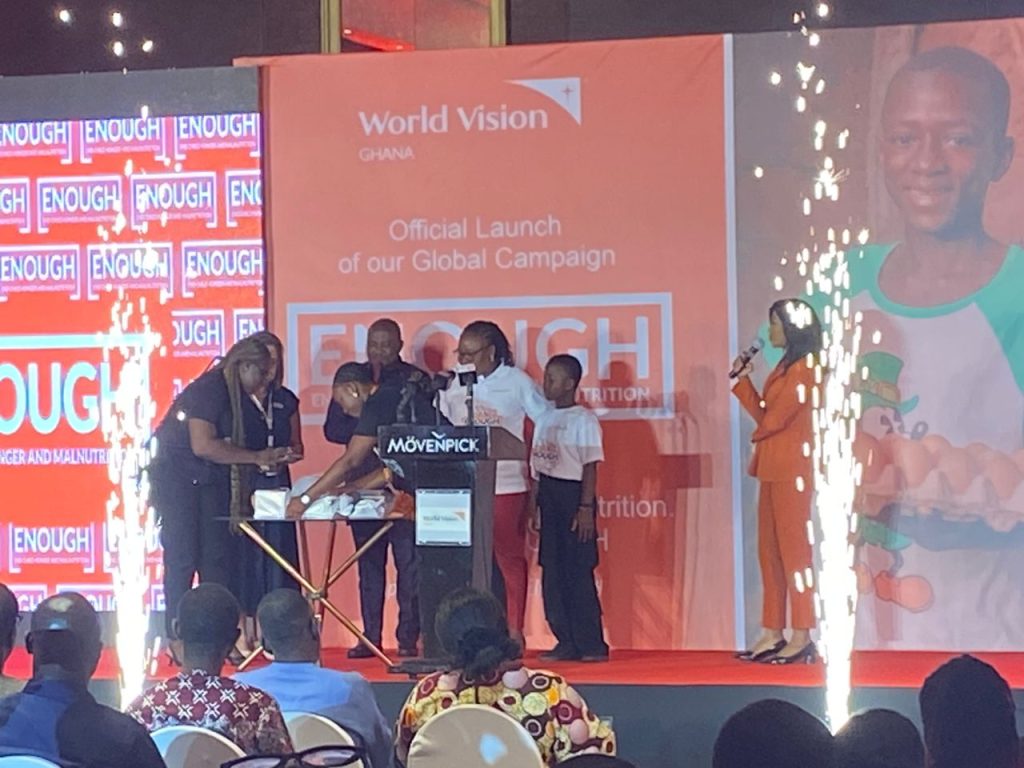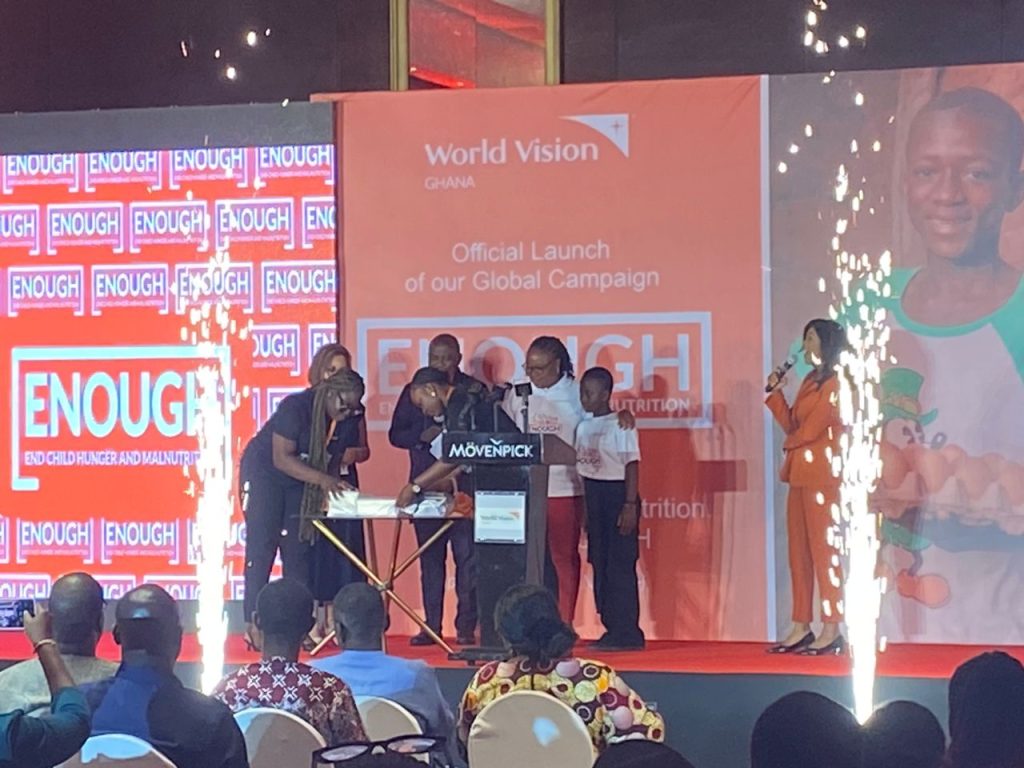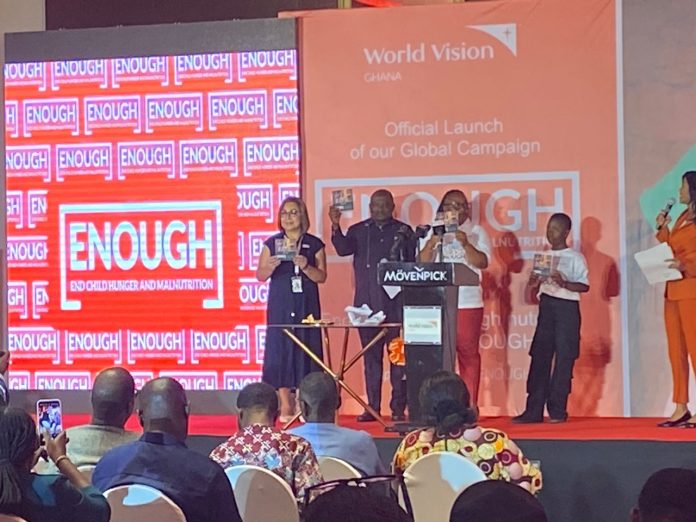Author: Emelia Naa Ayeley Aryee || Freelance Journalist
World Vision Ghana has officially launched its freshest global campaign, ENOUGH, aimed at eradicating hunger and malnutrition in children.
The 3-year campaign which also seeks to increase nutritious food portions to children in particular, as well as pregnant women, was launched at a high-leveled ceremony in Accra on Wednesday, July 17, 2024.
Earlier, the National Director of World Vision, Ms. Laura Del Valle, had said the campaign was necessary because a lot of children had become victims of hunger and malnutrition due to poverty.
Pregnant women are also at risk of hunger, malnutrition and anemia, and these are key components of the ENOUGH Campaign.
Food Security
In a detailed and thorough presentation, an Agricultural Economist with the University of Ghana, Dr. Irene Egyir, highlighted the situation of food, food security, and factors causing hunger and malnutrition in children and households.
According to Prof. Egyir, malnutrition affects children more than it does adults because the adults decide what to cook and the children bear the consequences.
She revealed that indicators such as interest rate, inflation, and poverty rate and driving forces of hunger and malnutrition.
She disclosed that at the time a research data was put together for the presentation, interest rate was more than 30%, inflation rate exceeding 20%, and poverty rate hanging at 9%.
These, she explained are threats to food security because they make food scarce, inaccessible, expensive, while affecting sustainability and utilization.
While inflation affects the earning of the working class so that their purchasing power is reduced, it also affects the production capacity of farmers.
Is Ghana food and nutrition situation good?
On whether Ghana’s food and nutrition situation is good or bad, Prof Agyir mentioned that the situation is good because food is available in excess in growing and capture places (sea for fish, snails from the bush), seasonal foods are available – rice, yam, cassava, and others.
The situation is again good because imports of food is allowed and there’s no restriction, and so both rich and not-so-rich people can all afford to get food.
On the other hand, the situation can be said to be bad because the poor cannot afford adequate portions of balanced diet all the time; while both the rich and poor are not utilizing the food ingredients effectively.
The research also shows that the poor lacks sufficient money to live standard life in society, with the majority of them relying largely on carbohydrate food.
Way forward
Prof. Egyir said food and nutrition security can be strengthened by means of policy dialogue among government and ministries, support NGO projects, building capacity of farmers and organization’s staff on good and modern good production and management, among others.
Prof. Egyir emphasized that finding ways to attract our educated youth into farming is another ideal way of increasing food growth and thereby getting enough food to fight hunger and malnutrition.
Minister pledges support
Taking his turn to speak, the Deputy Minister of Health,Alexander Akwasi Acquah, said the ministry is constantly looking to collaborating with other partners to improve health and wellbeing in all in Ghana.
He expressed how excited he is about the ENOUGH campaign because it will provide guidelines for the government to improve food supply to underserved children and other vulnerable people in the society.
He acknowledged the importance of good nutrition, saying it reduces the rate of chronic diseases and fosters overall well-being for economic development, and this has been on the agenda of the government.
“By 2030, government aims at reducing malnutrition, promoting health and nutritious food,” he disclosed.
“For optimal nutrition, WHO and UNICEF recommend breastfeeding within one hour of delivery. 6 months exclusively, and iron and folic acid for pregnant women and adolescent girls.
However, this has become impossible for many because of poverty and lack of enough nutritious food,” the minister stated.
He gave the assurance that government has an agenda to leave no one behind, especially children in providing enough and nutritious food.
There were solidarity messages from key partners, including WHO, PLAN International, Ghana Health Service, and SDG Goal 3 Platform.











































